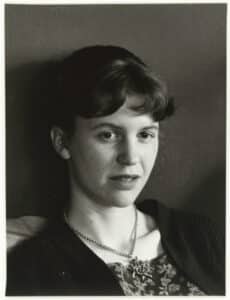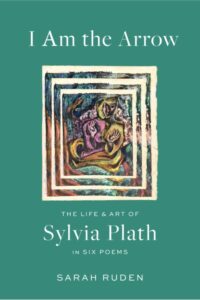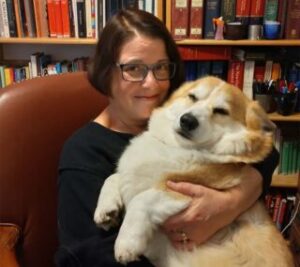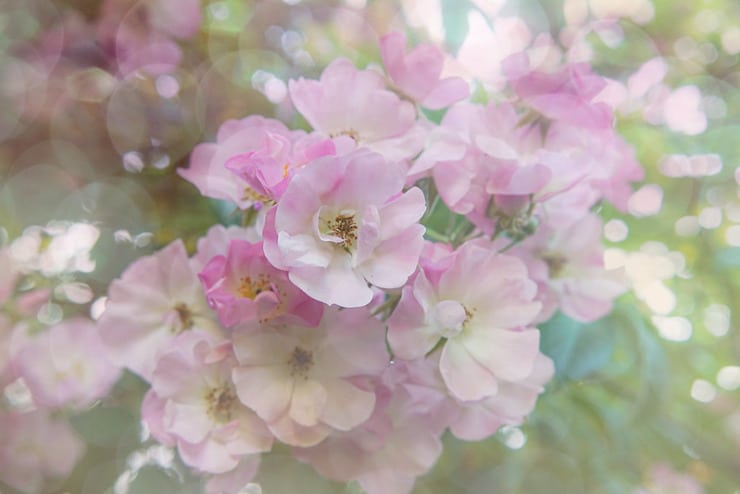
Sarah Ruden tells the story of Sylvia Plath in six poems
Can you tell a person’s story in six poems?
I may be the ideal person to test that question. Before I read I Am the Arrow: The Life and Art of Sylvia Plath in Six Poems by Sarah Ruden, I knew three or four things about Sylvia Plath (1932-1963): she’d been in a rather awful marriage with British poet Ted Hughes; she committed suicide; she’d published the autobiographical The Bell Jar under another name; and she had become a political icon for many people.
I knew about the marriage because I had read Crow by Ted Hughes and some of his biographical information. I’m not sure how I learned about the icon business, but, rightly or wrongly, I tend to shy away from poets and writers who become an icon for a political cause. I don’t have a good, thoughtful reason for that; it just is. And I had read only three of her poems — “Morning Song,” “Lady Lazarus,” and “Daddy.”

Sylvia Plath
Ruden set out to do more than write a biography. She wanted to tell Plath’s story and — importantly for me — strip away what’s accreted politically over the years and provide an assessment of her poetry. “Plath has often passed for more of a political cause than a poet,” she writes, “a judgment that reduces her reach into new readerships and frustrates lucid judgment of her aesthetics.”
I read that on the second page of Ruden’s introduction, and I knew I’d found the right book about Sylvia Plath. I was going to learn about her life, her poetry, how her life and art interacted, and what kind of poet she was, with only one collection published during her lifetime.

For someone like me, largely unfamiliar with Plath’s work and skeptical of writers deemed “political,” Ruden presents a convincing and engaging case. While not her express intention, she also provides a solid introduction to Plath’s life and poetry.

Sarah Ruden
Ruden is a writer, poet, and translator focusing on Greek, Roman, and biblical literature. Her works include Vergil: The Poet’s Life, The Gospels: A New Translation, Confessions of St. Augustine, The Aeneid (translation), Homeric Hymns, Other Places: Poems, and many others. She’s also contributed to several collections of essays and anthologies. Ruden has won several honors and awards for her work, including Guggenheim, Whiting, and Silvers grants.
The most important lesson for me from I Am the Arrow is that political causes and iconography can obscure both real talent and what a poet has truly achieved. Ruden acknowledges that many of Plath’s poems are political, but her body of work transcends politics.
A second lesson I learned is that a person’s life can be told in six poems, if the teller knows the subject. And Ruden knows her Sylvia Plath.
Related:
Poets and Poems: Ted Hughes’ Crow
Photo by Judy Dean, Creative Commons, via Flickr. Post by Glynn Young.
How to Read a Poem uses images like the mouse, the hive, the switch (from the Billy Collins poem)—to guide readers into new ways of understanding poems. Anthology included.
“I require all our incoming poetry students—in the MFA I direct—to buy and read this book.”
—Jeanetta Calhoun Mish
- Poet Sidney Lanier and the Lost Cause - October 2, 2025
- Poets and Poems: A.J. Thibault and “We Lack a Word” - September 30, 2025
- Poets and Poems: Catherine Strisik and “Goat, Goddess, Moon” - September 25, 2025


Maureen says
I have this title on my ever-lengthening list of books I want to read. I have read many books about Plath and Hughes, as couple and as individuals, but not one from the perspective of Plath as political cause, and I can’t say that I’ve ever read her poems with a political lens. So, I am interested to know what Ruden makes of Plath’s troubled life and how her poetry informs it, and how she regards Hughes’s and his actions following Plath’s death.
Glynn says
Ted Hughes has a small part to play in Ruden’s story about Plath. It’s as if she was concerned that too much about Hughes would take away from Plath, the same problem that existed when Plath was alive. Ruden doesn’t defend him, however; far from it.
Megan Willome says
I love this idea of six poems to tell a poet’s story.
I shied away from Plath not for political reasons, but from the tragedy of how her life ended. And then I saw the episode from the TV series “Dickinson” with Sylvia Plath, called “The future never spoke.” It’s a bonkers time-travel episode (and the whole show is definitely Not For Everyone), but it showed Plath from her time at Amherst, as a college girl. And I watched her with my eyes and mouth wide open, because this was a girl I felt like I knew.
I deeply love her poem “Wintering” *which I learned By Heart) and used it as a skeleton for my “Psalm 89” in Love & other Mysteries. It gets something about womanhood that I have not read elsewhere.